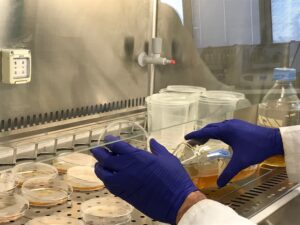
A growing market
According to the 2018 Organic Aotearoa New Zealand (OANZ) Market report, New Zealand’s total organic products market is valued at around $600 million, and has grown by 30% since 2015.
A global leader in probiotic manufacturing, CSL says their new product is designed to give food and beverage brands an opportunity to capitalise on this increasing demand for clean, natural and organic products.
“The New Zealand industry can benefit from not just local consumer interest in organic products, but also increased interest from international markets where organic foods continue to be a strong desire for health-conscious consumers,” says CSL Asia Pacific chief executive officer John Goebel.
“We believe the Florganic Probiotics range is innovative in its production and certification as it helps organic-focused brands to further deliver on their brand promise.
“Unlike probiotics which are not certified organic products, the Florganic Probiotic range still delivers clinically studied strains with the added quality appeal of being a certified organic product.”
Available in a powdered blend form, the probiotic range can be added to milk powders, supplements, infant formula, health and wellness powder, drinks, liquid drops, yoghurts, chocolate and meal replacement shakes.
The benefits of probiotics
Defined as living microorganisms, probiotics can provide a range of health benefits when consumed in certain quantities.
Well-documented lactobacillus strains, such as a Synbio® blend, Lactobacillus rhamnosus CRL1505 and Lactobacillus rhamnosus SP1 are on offer in the Florganics range. A leading Bifidobacteria strain is also available in the certified organic offering of Bifidobacterium animalis subsp. lactic BLC1.
Probiotic strains such as these have a number of health benefits, including:
- Immune system stimulation
- Lowering of blood ammonia
- Reduced serum cholesterol
- Strengthened mucosal barriers
- Alleviation of lactose intolerance
- Improved synthesis of B vitamins.
Probiotics in diary products
A number of studies have shown that probiotic bacteria have an improved survival and efficacy when delivered through milk, compared to any other medium.
Yoghurt, ice cream and cheese can also be made with the incorporation of probiotics. However, they don’t all respond the same.
Special care must be taken to ensure that the growth of an added probiotic culture in fermented milk products does not compromise the sensory profile of the product. This means that extra diligence must be taken during the prototype development, as well as during commercial production.
Meanwhile, ice cream can accommodate probiotics for a longer period (one year or more when stored at the correct temperature) than any other dairy product due to its frozen format. Cheese can also be an ideal carrier of probiotic additives thanks to a high fat and low water content – an ideal condition for probiotics.




























































































